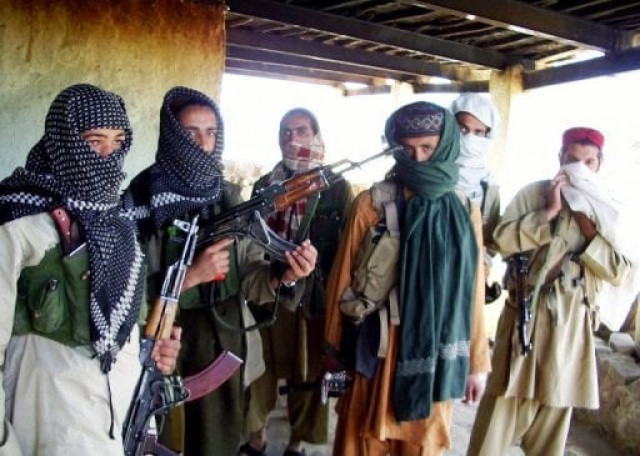Being ‘proactive’ against terrorism
The new ‘pre-emptive’ or ‘proactive’ approach will put an end to the myth of a US-Indian-Israeli axis.

Nothing new can be ushered in without first defining what we have to abandon as ineffective policy or ‘non-policy’, i.e. absence of a policy. Therefore, the first task of the combined civil-military effort, as embodied in the DCC, should be to revisit what Pakistan has adopted as policy in the past against al Qaeda and its Pakistani and foreign affiliates. Unless an objective analysis is made of the ingredients and origins of the old failed policy nothing worthwhile would be obtained as new policy. Should the new strategy be populist? Should the state first read the barometer of public opinion and accordingly? Our view is that if we have to strike at the increasingly successful strategy of al Qaeda and its affiliates we must first abandon the isolationist passions whipped up in the past to operate an unsuccessful approach. The new ‘pre-emptive’ or ‘proactive’ approach will put an end to the myth of a US-Indian-Israeli axis and bring Pakistan’s policy in line with the rest of the world and thus ensure its success.
Our first realistic objection to an isolationist stance is that it converts a factual situation into an ideological one and accepts ‘nazarya’ (belief) as ‘nazar’ (observation). Secondly, it pits the nation and the state against impossible military and economic odds that cannot be overcome to ensure victory. It goes against all military wisdom of such successful states in the world as China, our closest friend. Thirdly, we must revisit the nature of ‘public response’ and separate from it the ‘internal’ collaborators because, unfortunately, the ideology of al Qaeda happens to be the same as that of Pakistan.
The ‘guiding’ light in moulding the new joint civil-military effort should not be merely a civilian acceptance of military thinking. This, in turn, could point us to the military’s focus so far on India as Pakistan’s designated enemy and lead to a possible review of this doctrine given that by most accounts, the biggest threat to Pakistan today comes from within. All normal strategies adopted by the state have to emanate from the elected civilian authority leaning in favour of a realistic assessment of the national economy and the changing kaleidoscope of international forces.
The foremost topic that must come up before the planners of the new policy should be the phenomenon of ‘inside collaboration’ and that should focus our mind on the jihadi militias which even the most conservative commentators of the current policy accept as creatures of the state in its old identity as an irredentist state against the Soviet Union and India. These ‘state-empowered’ stormtroopers rebelled, when the Musharraf regime changed the state’s jihad policy and started targeting the state of Pakistan instead.
This suspicion of ‘inside help’ has surfaced every time the state agencies and state officials have been targeted, especially in the attack on the GHQ, the perpetrators of which were arrested but have not been punished so far. Also worth revisiting is the whole culture of ‘impunity’ available to terrorists after they are apprehended but let off by the courts as witnesses usually ‘chicken out’. The state must not ignore the observation made by ex-president and army chief, Pervez Musharraf when he pointed to the possibility of ‘rogue’ elements inside state institutions — just because he is someone who is seen as discredited by many.
Published in The Express Tribune, May 27th, 2011.














COMMENTS
Comments are moderated and generally will be posted if they are on-topic and not abusive.
For more information, please see our Comments FAQ